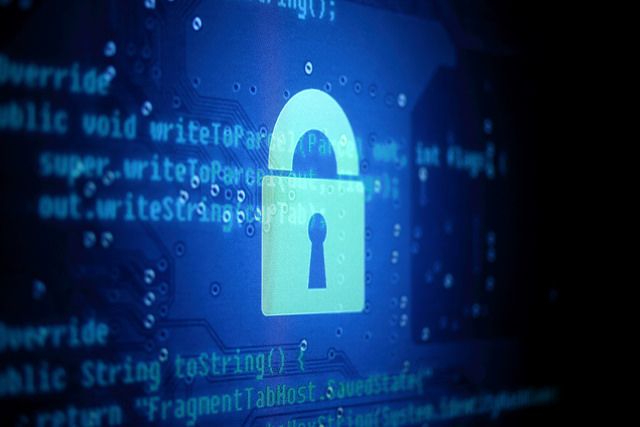The NSA's plans don't end with collecting your phone records. Here are just a few of the ways the National Security Agency (NSA) will be keeping tabs on you in the world of tomorrow. Prepare to be shocked, amazed, and a little freaked out.
Surveillance tends to be at the forefront of technology. Among details leaked by whistleblower Edward Snowden were plans to build a code-breaking quantum computer, a technology which could spell the end for cryptography and privacy. Worse, a quantum computer is by no means the only way the NSA is trying to crack encryption – or keep tabs on you in general.
Backdooring Encryption
The NSA recently admitted they no longer want to keep tabs on you using a variety of 'back-door' approachs. Instead, Michael S. Rogers, director of the NSA, says he wants a "front door. And I want the front door to have multiple locks. Big locks." Rogers is referring to the notion of split-key encryption, which allows all encryption to be unlocked using special keys owned by the government.
Encryption lets you turn plaintext data into ciphertext; that is, seemingly random characters unreadable without a key. Under split-key encryption, companies like Apple, Microsoft, and Google would be forced into creating a digital key that could unlock any smartphone and tablet - and this key would be available to government agencies. However, this requires trust of the authorities, and poses the risk that a single leak of the master keys could destroy global privacy.
Strong single-key encryption is a nightmare for security agencies because it means only the user can access locked data. This is standard on Apple devices. iOS 7, for instance, introduced Activation Lock, which insists on your ID and passcode before unlocking. It's a great way to combat thieves hungry to make a profit from stolen devices, as even Apple can't unlock it.
The NSA is looking into ways to bypass this, including a 'key escrow' – essentially multiple agencies owning keys to your data. That's a big privacy concern, so the front-door solution is perhaps preferable. However, it could be unconstitutional to put those restrictions on companies. Furthermore, if these backdoors are widely known to exist, it could hurt American companies ability to sell their systems overseas.
In the past, Yahoo! has fought for their users' rights, but security services have overruled them with threats of legal action if they don't comply, or disclose the information they're turning over. It remains to be seen if the same strong-arm tactics will be enough to force companies to imbed these backdoors.
Artificial Intelligence?
This idea was raised in connection to the NSA in 2009, but has been an undercurrent in science fiction for decades. Mark Bishop, chair of the Society for the Study of Artificial Intelligence and Simulation of Behaviour, said that, though he has no proof, he'd be "astonished if [the NSA and GCHQ] weren't using the best AI they could to scan all electronic communication they could."
In fact, he goes so far as to say he's "always believed that they're not doing their job properly if they're not using [Artificial Intelligence], regardless of belief of whether that's right or wrong." Bishop imagines a scanning system that would pick apart emails and texts and pass them up to human surveillance agents if they contain certain pattern or phrases.
There's also some suspicion that AI is being used by intelligence agencies to profile and predict the intentions of people deemed to be threats. Facebook can already judge your personality and predict your behavior. It's not out of the question that the NSA could do something similar. The Advanced Question Answering for INTelligence (Aquaint) project gathers data about citizens, to be sifted through by so-called "pre-crime" AI, designed to identify future criminals and predict their actions, a thesis that evokes films like Minority Report.
Even more unsettlingly, any interest you take in surveillance agencies - including reading this article – makes you of interest to the NSA!
Getting More Out of Data
Motion magnification has been around for at least 10 years: a way of noting small changes in motion and colour to exaggerate an image and locate a pulse or detect breathing. It means we can identify movements so minute the human eye can't see them, and could have applications in healthcare, education, and, naturally, surveillance.
Skin changes colour as blood flows through it. This is invisible to the naked eye, but it does leave evidence, even on grainy webcam video. But by running such a video through image processors, breaking it down into pixels, and magnifying each tiny change, we can see the pulse. You can measure heart rates, just as accurately as a polygraph.
This isn't just magnifying color changes - the motion microscope software can also detect and amplify visual flow - the actual motion of points in the scene, whether that's lungs filling up with oxygen, blood coursing through arteries, or pupils dilating. It brings a whole new meaning to body language, and means that those with access to this technology can read enormous amounts of information into otherwise uninteresting videos. This technology can even be used to extract audio from silent videos, by picking up tiny vibrations in objects in the scene. That's right: you can hear speech without the aid of a microphone.
Michael Rubinstein, whose team designed the motion microscope software, believes that it could be used to record audio on other planets, using telescoping photography. However, the applications to surveillance are obvious. We live in a world increasingly saturated with cameras - and, due to generally low standards of computer security, those cameras are an open book to organizations like the NSA, and the motion microscope gives them yet another tool to get more out of it.
Mobile Surveillance
Of course, security agencies won't always be able to get at the cameras and microphones on our mobile devices. Most of us pay at least a little attention to app permissions - but sometimes, malicious apps can track you in ways you don't expect.
Your smartphone contains extremely precise gyroscopes, which let them detect the phone's rotations. These are accurate enough to pick up the vibrations caused by sound, letting them be used as crude microphones, according to Wired. The technology is still in its infancy and needs refinement in conjunction with speech recognition algorithms, yet the potential could be there for the NSA to listen in to select conversations, given only access to the gyroscope, something that few mobile operating systems even count as a "permission" that the user needs to be aware of.
Similarly, a smartphone's accelerometer is essential for many apps, but could provide a means to track you. Notably, their unique micro- or nano-imperfections could be analysed, thus providing real-time location-based information, bypassing any in-app permissions. A team at the University of Illinois, College of Engineering found they could discriminate between sensor signals with 96% accuracy; combine this with possible fingerprints from other phone sensors and this would likely increase further.
Additional research into accelerometers investigated whether vibrations during login could be used to make accurate guesses at PINs and passcodes, which could be used by criminals and security services alike.
What Does This All Mean For You?
All of these are very real possibilities. Some may even be happening now.
Does it matter that the NSA's bulk phone data collection has been deemed illegal? When it comes to security and surveillance, the legal and ethical waters are murky. Security agencies will always be controversial: on one hand, they may be necessary to keep us safe from terrorism; on the other, it is dangerous to give up privacy and liberty for security.
Where do we draw the line? Do these technologies scare you, or put you at ease – to know that the NSA and GCHQ are developing new ways to keep us safe?
Image Credit: NSA by Creative Time Reports; System Lock by Yuri Samoilov; Hyperion by Junya Ogura; and GCHQ by UK Ministry of Defence.




